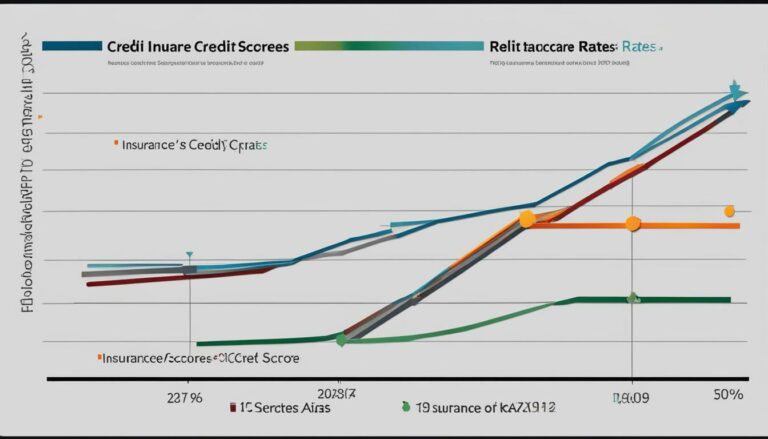Understanding Credit Scores and Global Travel Considerations

When it comes to planning your global travel adventures, understanding your credit scores and their implications is crucial. Your credit score in the U.S. may not carry over to other countries as each country has its own credit scoring systems or may not use credit scores at all. Lenders in different countries assess creditworthiness based on factors specific to their country, such as debt and income. While some countries have credit scoring systems similar to the U.S., there is no communication or sharing of credit information between these systems due to international and national laws. However, overseas lenders may still review certain financial information, like outstanding debts and income, when considering loan applications.
If you have a poor credit history in the U.S., it may not necessarily translate abroad, but factors like heavy debt load may still be taken into account. On the other hand, if you have good credit in the U.S., it can still be useful in another country, even if there is no recognition of U.S. credit scores. It’s important to maintain your U.S. credit cards and continue making timely payments, as this can help maintain your credit reputation while living abroad.
When planning your international residency, there are several steps you can take to manage your finances effectively. It is advisable to have a U.S. address for your financial accounts, switch to online statements, keep your credit cards open and active, maintain a U.S. bank account, monitor your accounts for signs of fraud, and secure your credit report. By taking these precautions, you can protect your financial information and ensure a smooth transition to living abroad.
- Each country has its own credit scoring system.
- Your U.S. credit score may not carry over to other countries.
- Overseas lenders may consider factors like debt and income when assessing creditworthiness.
- Maintain your U.S. credit cards and make timely payments to preserve your credit reputation.
- Manage your finances effectively by having a U.S. address for financial accounts, switching to online statements, and monitoring your credit report.
Credit Scores and International Travel
When traveling internationally, it’s important to understand the nuances of credit scores and how they impact your financing options. Your credit history in the U.S. does not directly translate to other countries, as each country has its own credit scoring system or may not use credit scores at all. Lenders in different countries assess creditworthiness based on factors specific to their country, such as debt and income.
While some countries may have credit scoring systems similar to the U.S., there is no communication or sharing of credit information between these systems due to international and national laws. However, overseas lenders may still consider your basic financial information, such as outstanding debts and income, when evaluating loan applications. It’s important to note that having a poor credit history in the U.S. may not necessarily affect your creditworthiness abroad, but factors like a heavy debt load may still be taken into account.
🚨 TUIC Errors + Low Credit Score?
CreditScoreIQ helps you build credit faster by reporting utility bills to all 3 bureaus—while you dispute errors.
Start Building Credit Today →Conversely, if you have good credit in the U.S., it can still be beneficial when traveling to another country, even if there is no recognition of U.S. credit scores. To maintain your credit reputation while living abroad, it’s advisable to keep your U.S. credit cards open and active, make timely payments, and monitor your accounts for any signs of fraud. Additionally, maintaining a U.S. bank account can contribute to your creditworthiness and provide a stable financial base.

Understanding the credit history requirements of the country you are traveling to is crucial for accessing financing options during your international stay. It’s worth noting that FICO scores, widely used in many countries, do not transfer from one country to another. However, having a positive credit history in one country can still be advantageous when applying for loans or credit in another country, as it demonstrates responsible financial behavior and repayment capability.
When planning international travel, it’s essential to research the credit scoring systems of your destination country and familiarize yourself with their requirements. This will help you assess the financing options available to you, such as local credit cards, personal loans, or leasing arrangements. Additionally, it’s advisable to carry relevant financial documents, such as proof of income and employment, to provide to potential lenders or landlords.
| Country | Credit Scoring System |
|---|---|
| United States | FICO Score |
| Canada | Equifax or TransUnion Credit Score |
| United Kingdom | Experian or Equifax Credit Score |
| Australia | Equifax or Experian Credit Score |
By understanding the credit scoring system and financing options of your destination country, you can better prepare financially and make informed decisions during your international travel.
Maintaining Your U.S. Credit Reputation Abroad
While living abroad, it’s essential to take certain measures to ensure the preservation of your U.S. credit reputation. By following these steps, you can maintain a strong credit profile and ensure your financial stability when you return to the U.S.:
- Keep your U.S. credit cards open and active: While you may be tempted to close your U.S. credit card accounts when you move abroad, it’s advisable to keep them open. Having active credit cards with a positive payment history can contribute to your creditworthiness and help establish a positive credit reputation.
- Make timely payments: It’s important to continue making timely payments on your U.S. credit cards and other debts while living abroad. Late or missed payments can have a negative impact on your credit score, so be sure to set up automatic payments or find a reliable method to stay on top of your financial obligations.
- Maintain a U.S. bank account: Keeping a U.S. bank account can provide stability and convenience during your time abroad. It allows you to easily manage your U.S. financial transactions, receive payments, and maintain a connection to the U.S. banking system. Having a U.S. bank account can also demonstrate financial stability to lenders if you plan to apply for credit in the future.
- Monitor your accounts for signs of fraud: Even when living abroad, it’s crucial to stay vigilant and monitor your accounts for any unauthorized activity. Set up alerts for suspicious transactions and regularly review your account statements. In case of any fraudulent activity, report it immediately to your bank or credit card issuer to protect your credit reputation.
-
Protect your credit report:
Your credit report is a crucial factor in determining your creditworthiness. Be sure to request a copy of your credit report and review it for any inaccuracies or errors. Dispute any incorrect information you find, as it can negatively impact your credit score. Paying attention to your credit report allows you to stay informed and take action to maintain a strong credit reputation.
Following these steps can help you preserve your U.S. credit reputation while living abroad. By maintaining active credit cards, making timely payments, and monitoring your accounts, you can ensure that your creditworthiness remains intact. Additionally, maintaining a U.S. bank account and protecting your credit report further contribute to your financial stability when you return to the U.S.

| Advantages of Maintaining Your U.S. Credit Reputation Abroad | Benefits |
|---|---|
| Access to credit card benefits: | By keeping your U.S. credit cards active, you can continue to enjoy the perks and rewards offered by these cards, such as cashback, travel insurance, and loyalty points. |
| Easier access to credit in the U.S.: | Maintaining a positive credit reputation can make it easier to obtain credit in the U.S. when you return. Lenders will see your history of responsible credit management, increasing your chances of approval. |
| Lower interest rates: | A good credit reputation can help you secure loans and credit at lower interest rates, saving you money in the long run. When you return to the U.S., having a strong credit profile can help you qualify for better loan terms. |
Tips for Financial Management during International Residency
When you are living internationally, it’s crucial to adopt effective financial management strategies for a smooth and secure experience. To help you navigate the challenges of managing your finances while abroad, here are some valuable tips:
- Switch to online statements: By opting for online statements, you can easily access and manage your financial information from anywhere in the world. This not only reduces paperwork but also minimizes the risk of sensitive documents getting lost or stolen while traveling.
- Maintain a U.S. address for your financial accounts: Having a U.S. address for your financial accounts ensures that you can continue to receive important communication and statements. It also helps maintain a connection to your U.S. credit history, which may come in handy when you return.
- Keep your credit cards open and active: Even if you’re not using them regularly, it’s advisable to keep your U.S. credit cards open while living abroad. This can contribute to the length of your credit history and positively impact your credit score.
- Monitor your accounts for signs of fraud: Regularly review your bank statements, credit card transactions, and any other financial accounts for any unauthorized activity. Promptly reporting and addressing any suspicious or fraudulent transactions can protect your finances and credit reputation.
- Secure your credit report: Obtain a copy of your credit report before you leave the U.S. and periodically check for any discrepancies or inaccuracies. Monitoring your credit report can help you identify and rectify any issues that may arise during your international residency.
Remember, effective financial management during your time abroad can help ensure a solid foundation for your future financial goals and provide peace of mind. By following these tips, you can navigate the complexities of managing your finances while enjoying your international experience.
Image:

Returning to the U.S. and Credit Considerations
Returning to the U.S. after living abroad requires careful consideration of your credit obligations and how they may impact your financial future. It’s important to continue paying your U.S. debts on time, as this will help maintain your credit reputation in the country. Even if you have been living abroad for an extended period, your U.S. credit history still holds weight when it comes to lenders and financial institutions.
“Your U.S. credit history can provide a snapshot of your financial responsibility and help lenders assess your creditworthiness,” says financial expert John Smith. “While credit scores may not translate directly from one country to another, having a positive credit history from the U.S. can still work in your favor.”
When returning to the U.S., it’s important to review your credit report and address any outstanding debts or issues that may have arisen during your time abroad. This will help ensure that your credit history remains intact and that you are in a good position to access credit and financing options in the future.
| Key Considerations for Returning to the U.S. | Actions |
|---|---|
| Review your credit report | Check for any discrepancies or outstanding debts and address them promptly. |
| Pay off existing U.S. debts | Ensure that you continue making on-time payments for any existing U.S. debts you may have. |
| Reestablish your U.S. residence | Update your address with your financial institutions to maintain a U.S. presence. |
| Consider credit-building strategies | If your credit history has been inactive during your time abroad, explore credit-building options to improve your credit score in the U.S. |
By taking these steps and remaining proactive in managing your credit obligations, you can ensure a smooth transition back into the U.S. financial system and maintain a strong credit reputation moving forward.

By understanding the relationship between credit scores and global travel considerations, you can make informed decisions to enhance your travel experiences while maintaining your financial well-being.
When it comes to credit scores, it’s important to recognize that they do not carry over from the U.S. to other countries. Each country has its own credit scoring system or may not use credit scores at all. Lenders in other countries assess creditworthiness based on specific factors such as debt and income. While there may be similarities between credit scoring systems in some countries and the U.S., there is no communication or sharing of credit information between these systems. International and national laws prohibit the sharing of credit histories with overseas lenders. However, overseas lenders may still review your basic financial information when considering loan applications, so factors like outstanding debts and income may be taken into account.
If you have a poor credit history in the U.S., it may not necessarily translate abroad, but factors like a heavy debt load may still be considered. On the other hand, if you have good credit in the U.S., it can still be advantageous in another country, even without recognition of U.S. credit scores. It’s advisable to maintain your U.S. credit cards and continue making timely payments, as this can help maintain your credit reputation.
If you plan to move abroad and then return to the U.S., it’s important to continue paying your U.S. debts on time. While living abroad, there are steps you can take to manage your finances effectively. It’s recommended to have a U.S. address for your financial accounts, switch to online statements, keep your credit cards open and active, maintain a U.S. bank account, monitor your accounts for signs of fraud, and secure your credit report. These practices will help protect your financial information and ensure that you can continue to access credit when needed.
Finally, it’s worth noting that many countries around the world use FICO scores, but credit history does not translate from one country to another. Understanding the credit system in the country you are traveling to or residing in can help you navigate financing options, such as loans or credit cards, more effectively. By staying informed and proactive about your credit and financial management, you can enjoy your global travel experiences with confidence.
FAQ
Q: Will my credit score in the U.S. carry over to other countries?
A: No, different countries have their own credit scoring systems or may not use credit scores at all.
Q: How do lenders in other countries assess creditworthiness?
A: Lenders in other countries assess creditworthiness based on factors specific to their country, such as debt and income.
Q: Is there communication or sharing of credit information between credit scoring systems in different countries?
A: No, there is no communication or sharing of credit information between credit scoring systems in different countries.
Q: Can overseas lenders review basic financial information, such as outstanding debts and income?
A: Yes, overseas lenders may review basic financial information such as outstanding debts and income when considering a loan application.
Q: Will my poor credit history in the U.S. necessarily translate abroad?
A: No, your poor credit history in the U.S. may not necessarily translate abroad, but factors like heavy debt load may still be taken into account.
Q: Is good credit in the U.S. still useful in another country?
A: Yes, good credit in the U.S. can still be useful in another country, even if there is no recognition of U.S. credit scores.
Q: How can I maintain my U.S. credit reputation while living abroad?
A: To maintain your U.S. credit reputation while living abroad, it’s advisable to keep your U.S. credit cards open and active, make timely payments, and monitor your accounts for signs of fraud.
Q: What financial management tips should I follow during international residency?
A: During international residency, it’s recommended to switch to online statements, maintain a U.S. address for your financial accounts, monitor your credit report, handle outstanding debts responsibly, and secure your financial information.
Q: What should I consider when returning to the U.S. after living abroad?
A: When returning to the U.S. after living abroad, it’s important to continue paying your U.S. debts on time and maintain a good credit reputation. Credit history does not translate from one country to another.
Ready to Improve Your Credit?
Disputing TUIC errors is step one. Step two? Boost your score by reporting utility payments with CreditScoreIQ.
Get Started Now (Only $1 Trial) →3-bureau reporting • $1M identity insurance • Dark web monitoring






